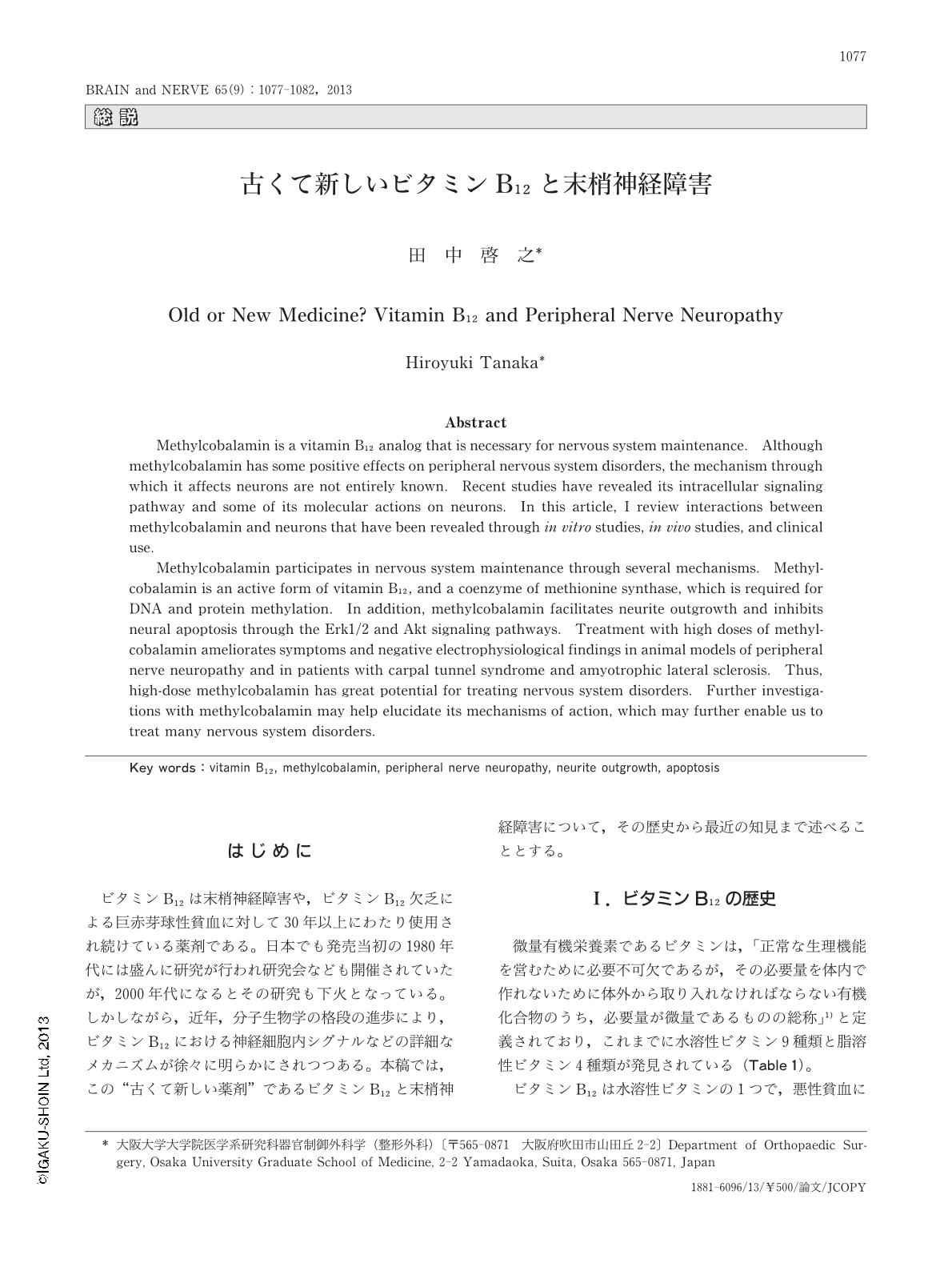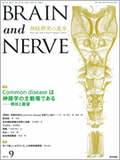Japanese
English
- 有料閲覧
- Abstract 文献概要
- 1ページ目 Look Inside
- 参考文献 Reference
はじめに
ビタミンB12は末梢神経障害や,ビタミンB12欠乏による巨赤芽球性貧血に対して30年以上にわたり使用され続けている薬剤である。日本でも発売当初の1980年代には盛んに研究が行われ研究会なども開催されていたが,2000年代になるとその研究も下火となっている。しかしながら,近年,分子生物学の格段の進歩により,ビタミンB12における神経細胞内シグナルなどの詳細なメカニズムが徐々に明らかにされつつある。本稿では,この“古くて新しい薬剤”であるビタミンB12と末梢神経障害について,その歴史から最近の知見まで述べることとする。
Abstract
Methylcobalamin is a vitamin B12 analog that is necessary for nervous system maintenance. Although methylcobalamin has some positive effects on peripheral nervous system disorders, the mechanism through which it affects neurons are not entirely known. Recent studies have revealed its intracellular signaling pathway and some of its molecular actions on neurons. In this article, I review interactions between methylcobalamin and neurons that have been revealed through in vitro studies, in vivo studies, and clinical use.
Methylcobalamin participates in nervous system maintenance through several mechanisms. Methylcobalamin is an active form of vitamin B12, and a coenzyme of methionine synthase, which is required for DNA and protein methylation. In addition, methylcobalamin facilitates neurite outgrowth and inhibits neural apoptosis through the Erk1/2 and Akt signaling pathways. Treatment with high doses of methylcobalamin ameliorates symptoms and negative electrophysiological findings in animal models of peripheral nerve neuropathy and in patients with carpal tunnel syndrome and amyotrophic lateral sclerosis. Thus, high-dose methylcobalamin has great potential for treating nervous system disorders. Further investigations with methylcobalamin may help elucidate its mechanisms of action, which may further enable us to treat many nervous system disorders.

Copyright © 2013, Igaku-Shoin Ltd. All rights reserved.


